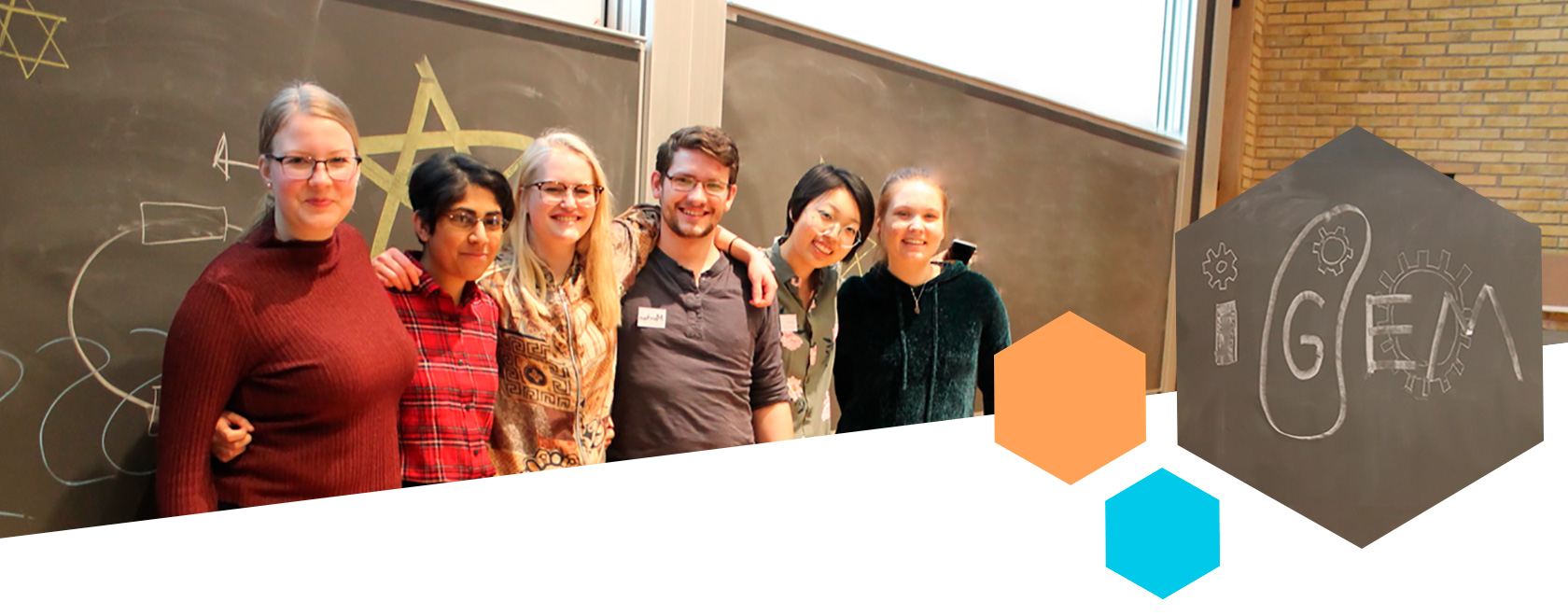
Education
As a team of highly motivated university students, all of us value, not only the importance of proper education, but also the opportunity to be influenced in an early age at where your dreams develop; the world is our oyster and one should feel so. Through an unanimous vote, our team decided the education branch was one we wanted to pursuit with high ambitions. Biotechnology is still a new field in education and who would be better to develop its role in our country than a team working through their summer vacation in the name of science.
Science in Forum
Back in April, we were present at Science in Forum - an annual science festival targeted at children of all ages. Our main purpose was to peak the visitor’s interest in biotechnology and the possibilities that come with it both on a bigger scale and related to iGEM. It quickly became clear, that text-packed scientific papers was a wrong angle and by changing our methods to reaching the children’s level with Jurassic World-references and DNA-strings made out of candy, we managed to communicate the purpose of our project in broad terms to a lot of interested children as well as load them up with sugar.
It was great to see the vast expression of interest in all ages and it was an immense opportunity to practice creating material to the proper audience. It was clear to us, that we didn’t have a strong enough case as our project at this point and being questioned basic questions by kids and more detailed questions by adults, we got a head start with flaws and gaps we would have to seal to have a strong project.
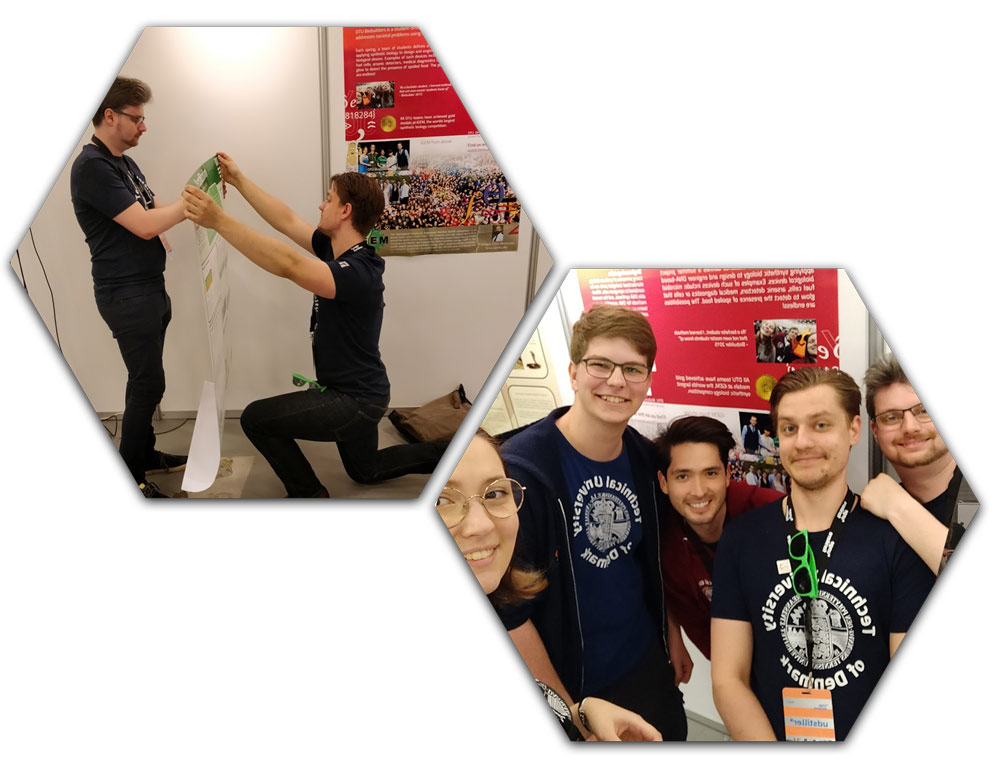
The Copenhagen High School Symbiotes Project
It was our PhD. supervisor Kyle who got the idea to expand the iGEM participation in Denmark and include a high school team of students at ages between16-19. There has been a growing interest in the High school track around the world (see Fig 1). Philip, from last year’s DTU team, Tenna and Jacob therefore set out to establish a high school team in the greater Copenhagen area to compete in iGEM; and so, the project ‘Copenhagen High School Symbiotes’, CHSS for short, was born.
Fig. 1: - High school teams competing in iGEM (1)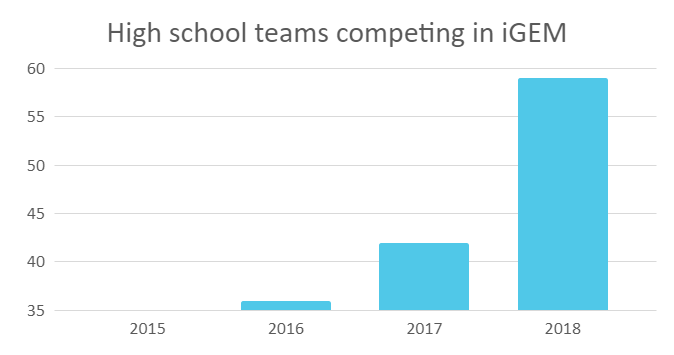
Since it would be the very first high school team from Denmark to enter iGEM, a lot of regulations and rules had to be checked with the proper authorities to make sure it was feasible. With the green-light given, CHSS started to take shape.
Firstly, by the suggestion of Philip, they got in contact with the non-profit organization Biotech Academy, located at DTU, to plan a collaboration with them as they have relevant expertise with high school projects. The project could be modeled after the Biosensor project, which is another collaboration between Biotech Academy and DTU Biobuilders.
As past and present participants of the DTU iGEM team, they could contribute with structure of the process, planning, gathering the necessary information and having the required knowledge regarding the competition to sell it to the teachers of the different high schools. Biotech Academy, on the other hand, offered experience with teaching biotechnology, engaging the students and what is necessary to be allowed to work in the lab with high schoolers.
Moving forward with the project, they realised many more benefits of the CHSS team becoming a reality. Not only would it spark an interest in synthetic biology, which is currently not widely taught in high schools, but it would also make a great chance for a collaboration with future teams from DTU and hopefully inspire more teams from Denmark.
The next step was getting the faculty to confirm the project as well as the necessary budget. The three of them all spent weeks researching, corresponding through emails and having meetings with Biotech Academy and the DTU faculty to make the plans reasonable and feasible.
However, to make sure the project stood solid when going to the faculty to get approved, and also for when sending out funding applications, they needed to have the high schools behind them supporting the CHSS project.
The participants would come from different high schools and conduct their research at DTU. The high schools were chosen based on location compared to DTU, the general level of education and competitiveness, as well as the level of science taught.
It didn’t take very long until a total of seven high schools had shown interest and so, the search for funding began. To get a strong head-start, they decided to apply for a three-year period. Many hours were spent in perfecting the applications since they knew it was a lot of money to ask for.
As they neared the Giant Jamboree they had gotten several recommendations written for their fond application and it was sent out. The entire team is waiting anxiously for the answer in January as everyone sees the great potential in a high school team.
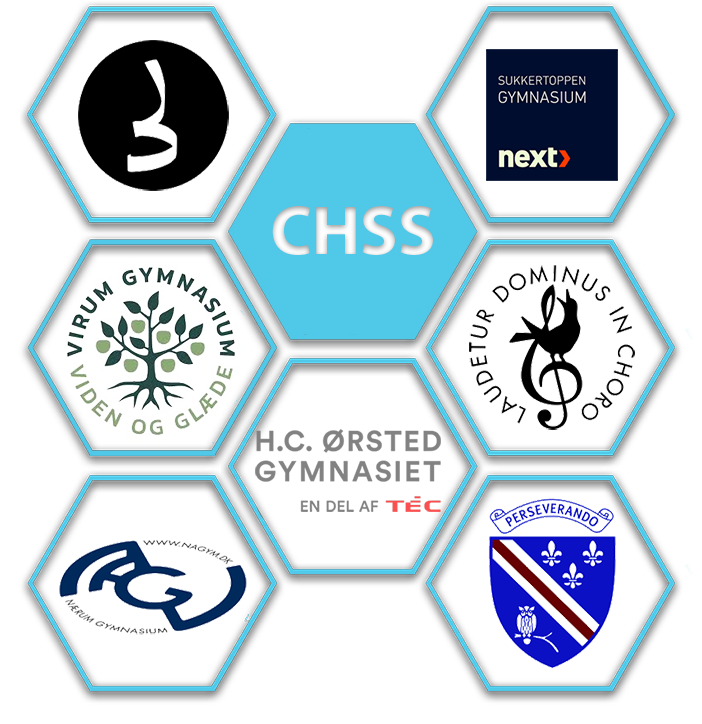
Priming the Next Generation
In the early months of our iGEM project, Tenna from our team was recognized by her old science teacher from her elementary school from seven years ago. He was delighted that one of his students had been inspired by his teachings and had chosen a career in science. They agreed that back then, the chances of being inspired and learn about different branches of science, such as biology, had been lacking.
It was between the two of them that our project, ‘Priming the Next Generation’, began.
As a part of our community engagement, we embarked on this journey of presenting the many possibilities in biotechnology and its intriguing applications to make the world a better place to ninth graders in elementary school.
Lina, Tenna and Jacob began the venture with three classes, a total of 60 students, who were all very eager to learn the advantages and capabilities that biotechnology holds in transforming our everyday life. After a short introduction to iGEM and our project, we spent some time learning and talking about subjects such as: Medical microbiology, bioinformatics, astrobiology and, synthetic biology. We wanted to illuminate the wide variety of subjects of biotechnology. and remove the stigma that biotechnology is “only bacteria and yeast”.
We proceeded to teach the students about existing projects, among these were some old iGEM projects from DTU, and what their possibilities with regards to education and careers in Denmark are. After the introduction of what you could do with synthetic biology, a discussion began between the students with what a possible project could be. No ideas were too “out there” and Tenna, Lina and Jacob tried to develop on their ideas and illuminate the feasible aspects of them.

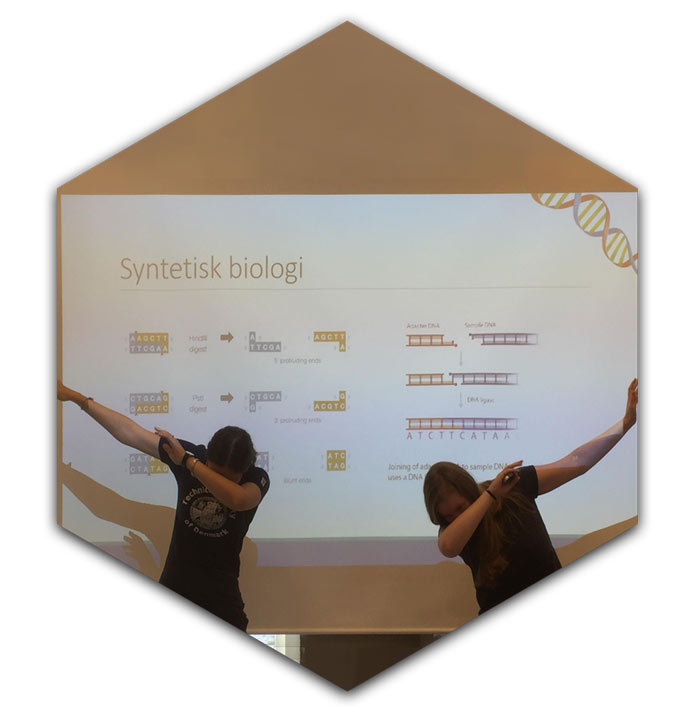
Of course, it shouldn’t be too heavy for the fleeting minds of 9th graders, so we not only made sure to keep it interactive, with questions for the audience, but they also held a fun Kahoot quiz where the students’ listening skills were put to the test. To keep them on their toes a question about Fortnite and Shawn Mendes was thrown into the mix.
The students were thrilled and the teachers all agreed that they would like this to be an annual event with the future DTU iGEM teams.
After the success at the first school, interest grew among other schools. After a short period we were in contact with Lina’s old school, Sankt Annæ song-school as well as the private school Skt. Knud Lavard, near DTU.
It was great to see that it wasn’t only the teachers we had inspired, but also a lot of the students since some, since then, have decided to learn more about synthetic biology and its role in society. Inspired, a group of three boys from Sankt Annæ approached Tenna and Lina for help answering questions for their final project in ninth grade where they’d decided to work on the ethical aspects of GMO.
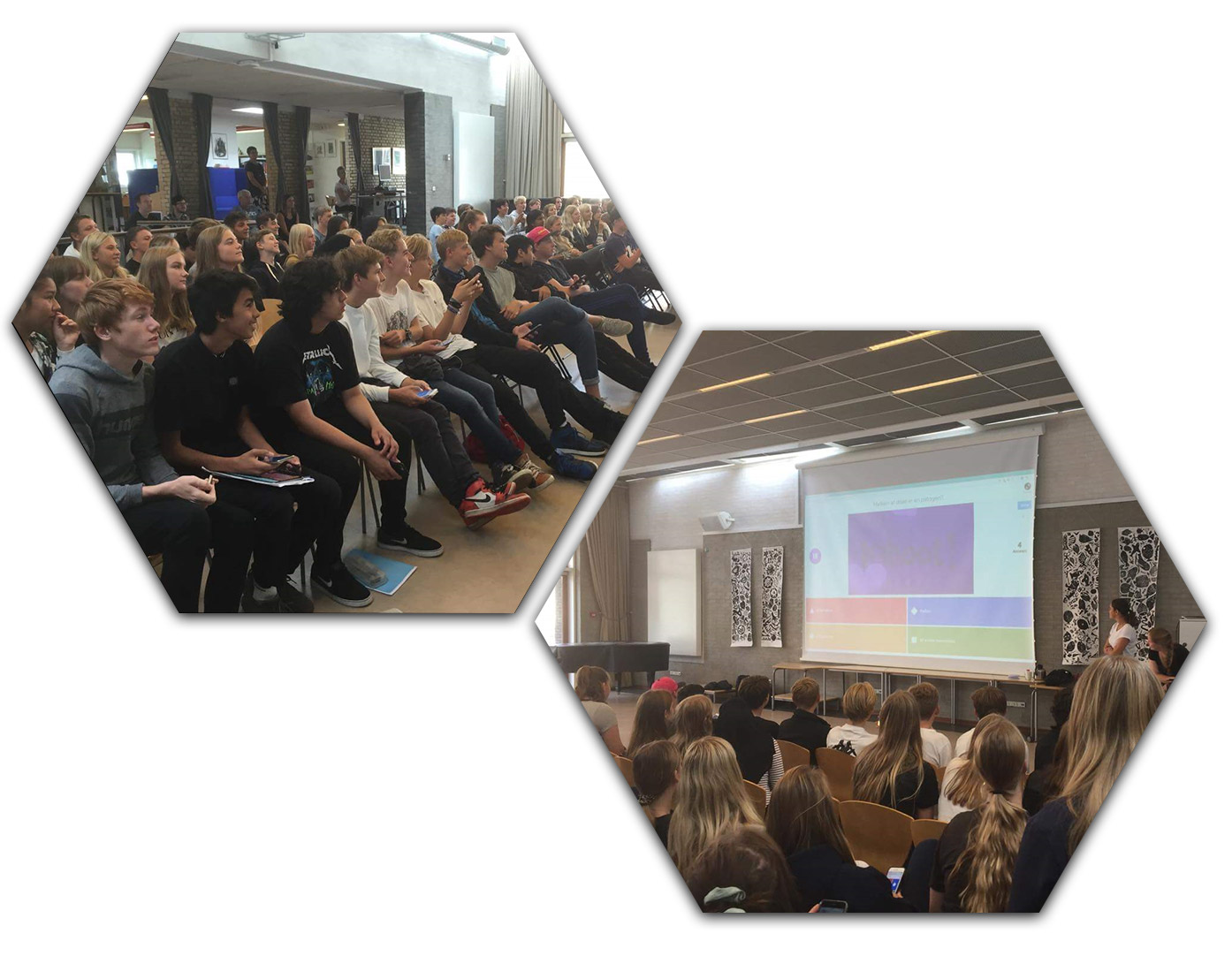

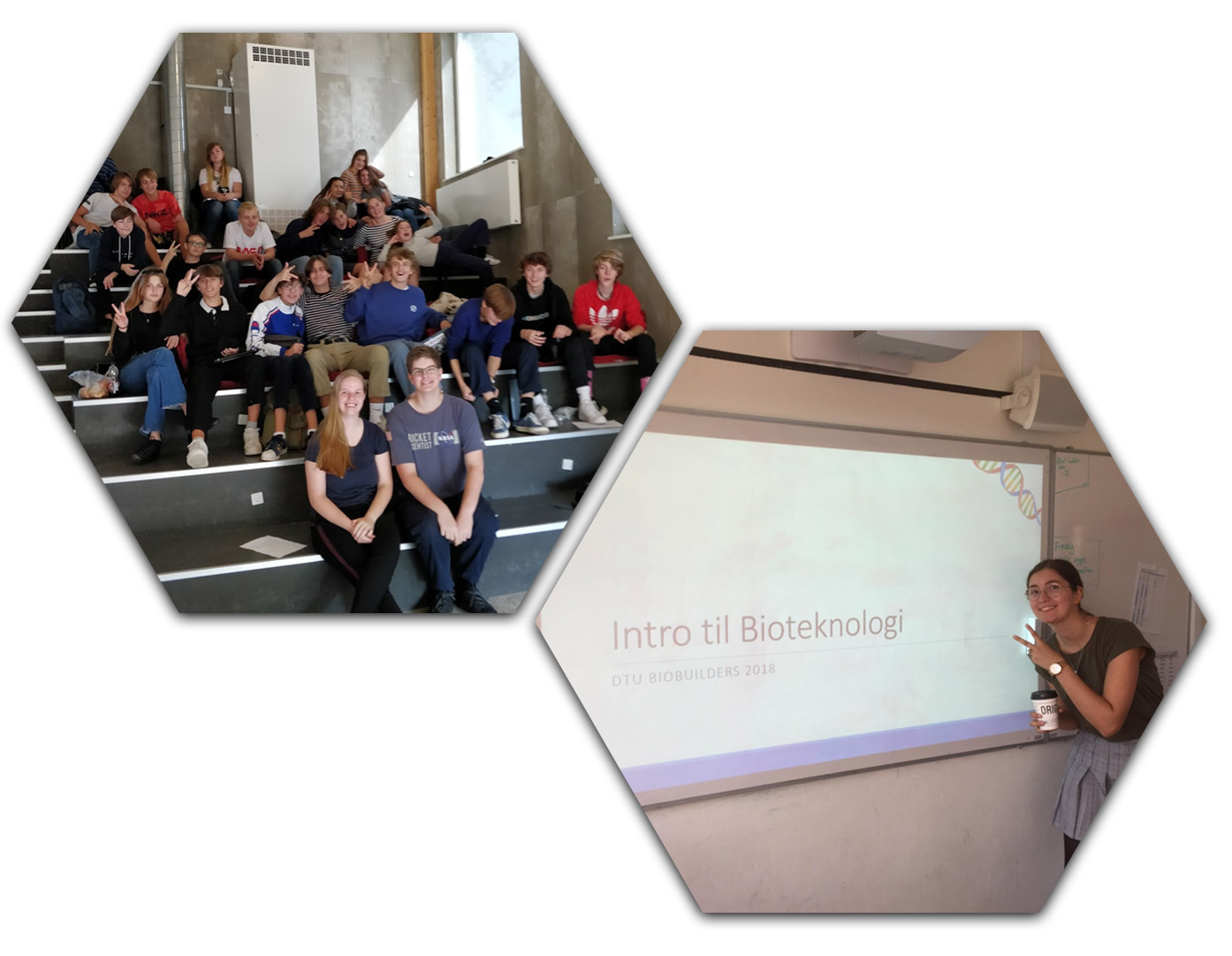

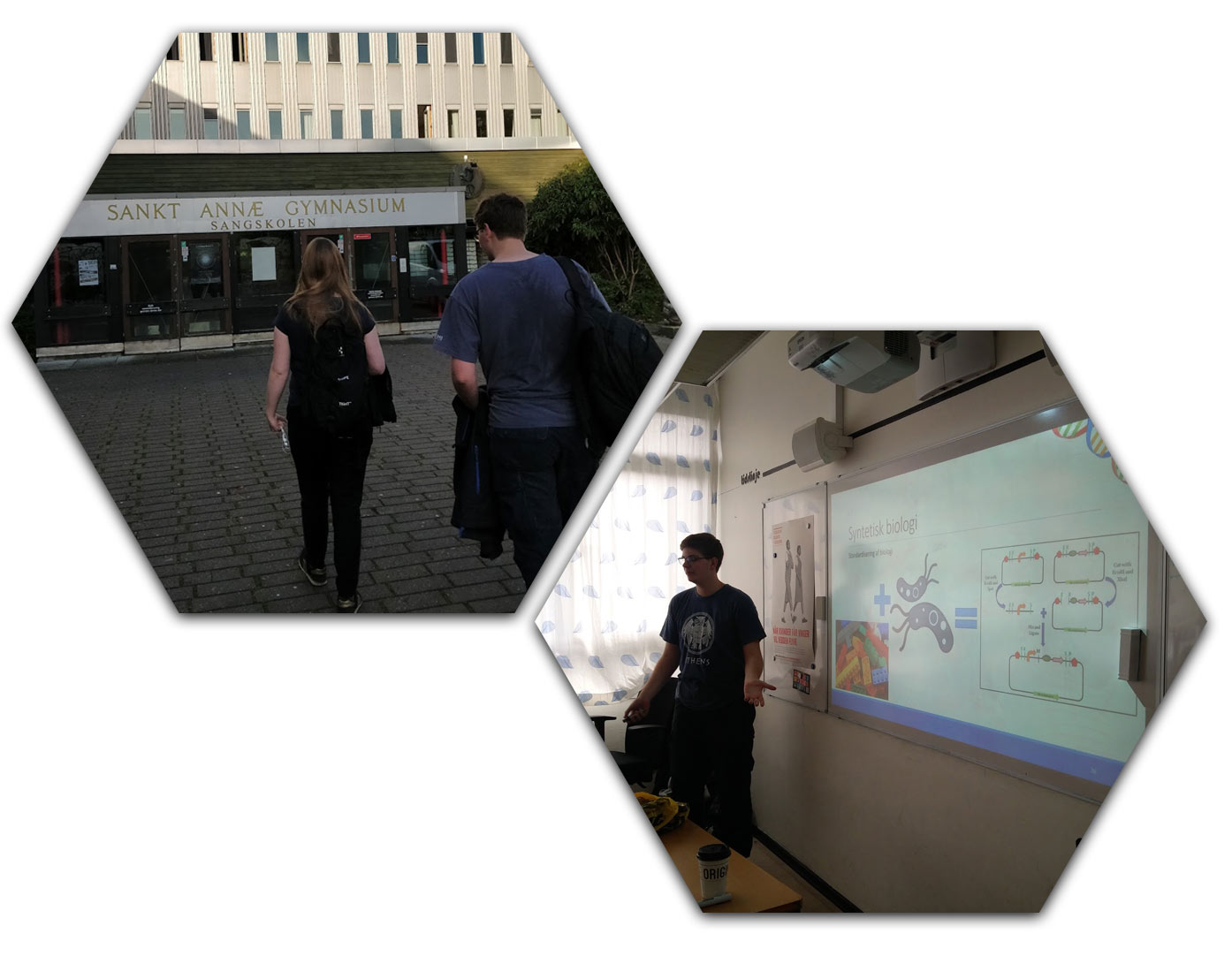
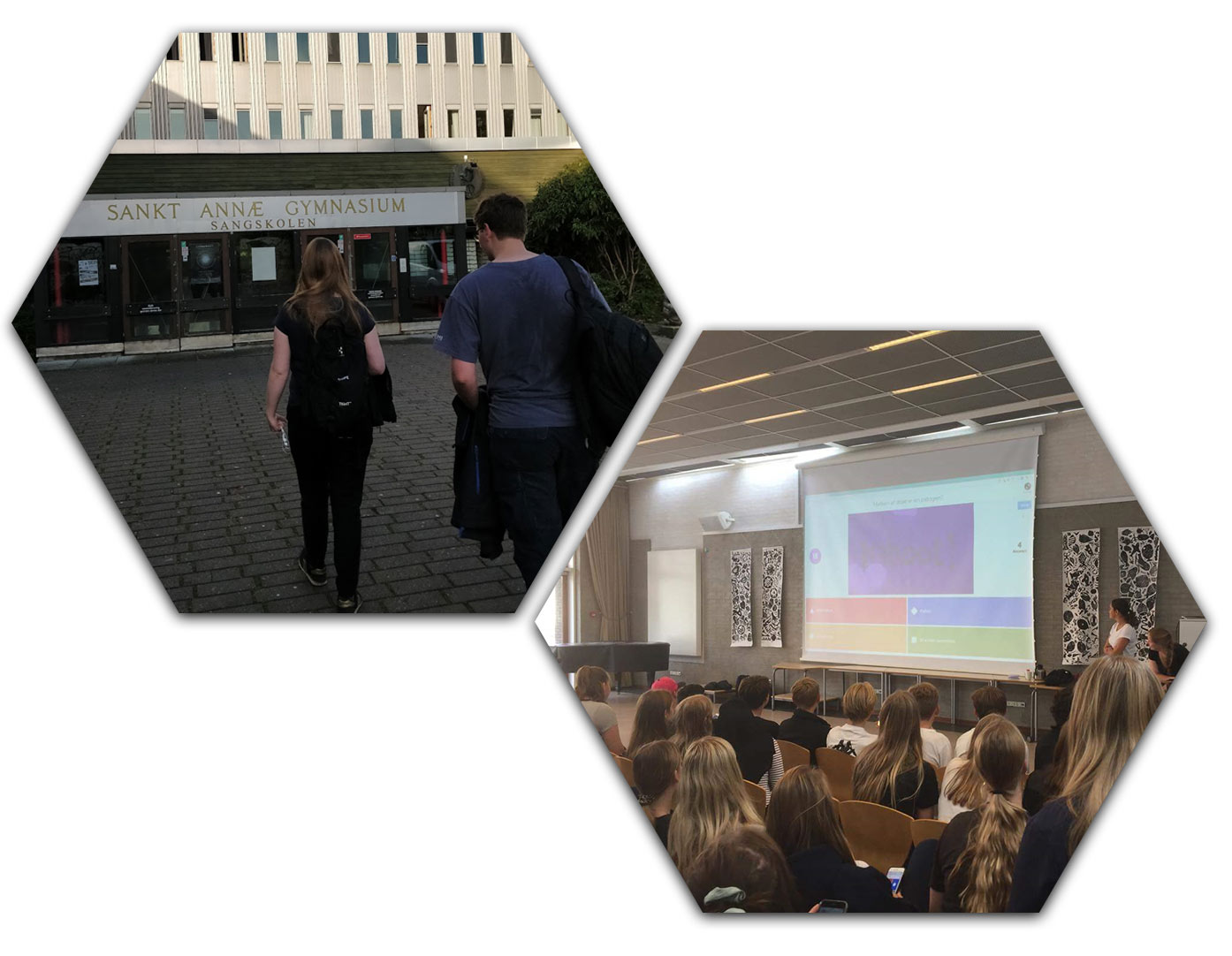
At the end of the iGEM-project, we had visited three schools and had plans to visit one more school.
It was an overall great learning experience for us and we were all extremely pleased having had the possibility of establishing this project. Being at university-level, it can be hard to remember what is interesting to elementary schoolers. Many of the pupils surprised us with great ideas and pre-knowledge of biotechnology and it was a great learning experience in compiling an appropriate presentation for your audience.

(1) iGEM. Team List For iGEM 2018 Championship. 2018. http://iGEM.org/Team_List?year=2018&name=Championship&division=iGEM. (Accessed October 7, 2018).
